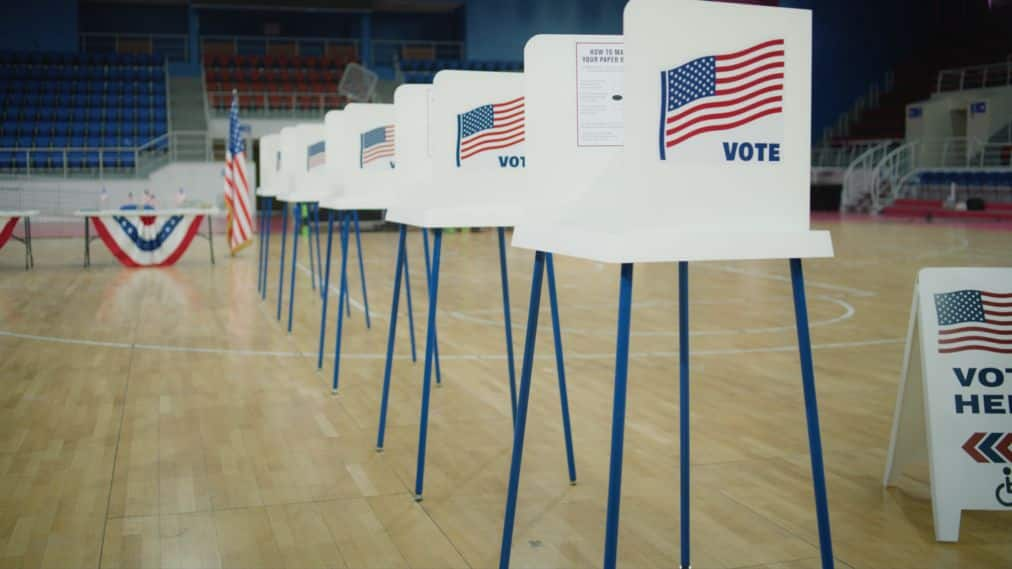
US election: Fences up, snipers ready to prevent 2020 redux
What's the story
The United States is on high alert as it gears up for what could be a tense election night on Tuesday. The presidential race between Democratic candidate Kamala Harris and Republican candidate Donald Trump is expected to be a close one. Anticipating possible unrest like the aftermath of the 2020 election, several precautions have been taken across the country.
Security measures
Washington DC fortifies key government buildings
In Washington DC, metal security fences have been put up around important government buildings such as the White House and the US Capitol. The US Secret Service has also put up eight-foot-high metal fences around the Treasury Department complex and Lafayette Square. Bicycle-rack barriers are also set up at the Capitol, a site of major unrest during the 2021 Capitol Hill riot.
State precautions
Battleground states enhance security, activate National Guard
Security measures go beyond Washington, with battleground states such as Nevada and Arizona taking extra precautions. In Nevada, a security fence surrounds a Las Vegas building where votes are tabulated. Governor Joe Lombardo activated a limited contingent of 60 National Guard members to ensure a timely response to any challenges. In Arizona, Sheriff Russ Skinner placed his department on high alert with drones and snipers on standby.
Protective measures
Business owners, election workers prepare for potential unrest
Business owners across several locations have erected plywood barriers to shield their properties from possible vandalism. Election workers will be provided with panic buttons and surveillance drones will be deployed at several locations. Snipers will be positioned on rooftops of key vote-counting centers to maintain safety. These measures highlight fears of possible political violence on and after Election Day.
Legislative impact
Congressional control at stake in US elections
The battle for control of Congress is just as important for many Americans as it decides legislative direction on issues like healthcare and climate policy. All 435 seats in the House of Representatives are up for grabs, along with 34 Senate seats. The outcome will determine if the incoming president can implement their agenda or be stuck in bureaucratic deadlock.